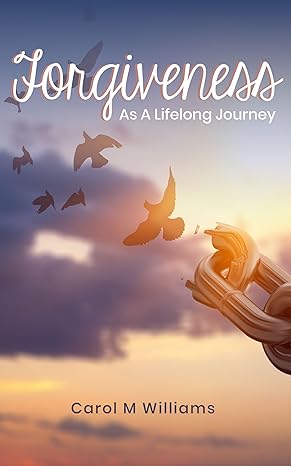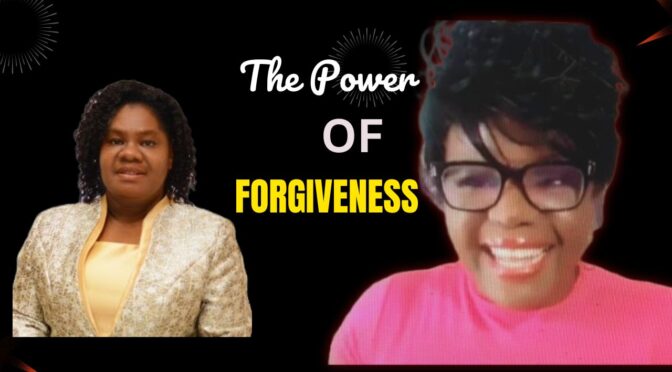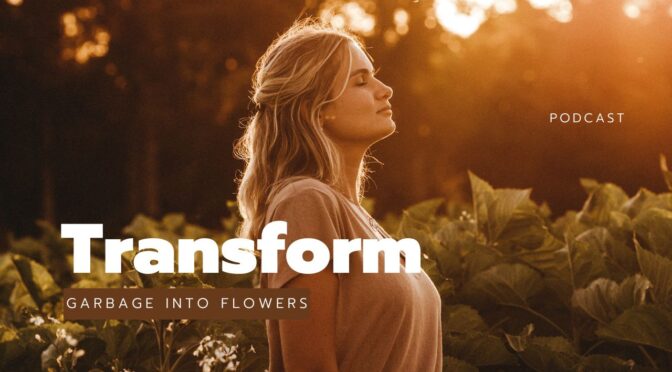Join host Myrna Young as she interviews author Carol M. Williams on the power of forgiveness. In this episode of “Author’s Corner,” Carol discusses her book, “Forgiveness as a Lifelong Journey,” which offers a nine-step program for practicing forgiveness. Carol shares her personal story of forgiveness and provides practical advice on how to let go of anger, release resentment, and embrace empathy. Discover the transformative power of forgiveness and learn how it can change your life one step at a time. Don’t miss this heartfelt conversation on the importance of forgiveness.
Download the podcast here:
Uncovering the Hurt: Identifying and Accepting
In her book Forgiveness as a Lifelong Journey, author Carol M. Williams explores the transformative, power of forgiveness. She emphasizes that forgiveness is not just a feeling, but a deliberate choice that can lead to profound personal growth and mental health improvement. Williams highlights the importance to forgive in our relationships with God, ourselves, and others.
The first step is practicing, forgiveness meditation, to identify the hurt. Williams suggests conducting a self-assessment to understand how the hurt is affecting us on a daily basis. By acknowledging the pain and its impact, we can begin to accept our past and the circumstances that led to the hurt. This acceptance is crucial because we cannot change what has happened, but we can choose how we respond to it.
Healing the Heart: Releasing Resentment and Embracing Forgiveness
Once we have identified the hurt, the next step is to release resentment. Williams acknowledges that this is often the most difficult part of the process. Many people hold onto anger, hurt, and bitterness for years, which only perpetuates their suffering. To release these negative emotions, Williams suggests practicing self-compassion and mindfulness.
Self-compassion involves forgiving ourselves and letting go of self-blame. It is important to recognize that we are not perfect and that we make mistakes. By practicing self-compassion, we can begin to heal our hearts and move towards our, forgiveness journey.
In addition to self-compassion, Williams emphasizes the importance of empathy and understanding. By putting ourselves in the shoes of the person who hurt us, we can begin to see their perspective and find compassion for them. This does not mean excusing their actions, but rather acknowledging that they may have been going through their own struggles or difficulties. By embracing empathy, we can start to let go of the resentment and anger that holds us back from unforgiveness.

Embracing Forgiveness: Restoring Self-Worth and Crafting a New Narrative
The final stage of the, forgiveness journey, is embracing truth. Williams outlines a nine-step program that guides individuals through this process. One of the key steps is restoring self-worth. When someone has hurt us deeply, it is common to question our own worth and blame ourselves for the pain we have experienced. By working on restoring self-worth, we can begin to appreciate the positive aspects of ourselves and recognize that we deserve healing.
Another important step in the process is crafting a new narrative. This involves creating a new, positive story around our experiences. Instead of dwelling on the hurt and pain, we can focus on moving forward and creating a better future for ourselves. By reframing our experiences in a positive light, we can find healing and freedom.

Conclusion
In conclusion, this is a lifelong journey that requires deliberate choice, self-compassion, and empathy. It is not an easy process, but it has the power to transform our lives and improve our overall well-being. By identifying and accepting the hurt, releasing resentment, embracing empathy, restoring self-worth, and crafting a new narrative, we can embark on a path of emotional freedom.
If you are struggling with unforgiveness, remember that help is available. Carol M. Williams offers a comprehensive, forgiveness coaching program, and has written a heartfelt guide in her book Forgiveness as a Lifelong Journey. Through her work, she empowers individuals to release the weight of the past, embrace a future filled with love and understanding, and change their lives one forgiveness step at a time.
To connect with Carol M. Williams and learn more about her, forgiveness coaching program, and book, you can visit her website at www.yournewstoryLLC.com or find her on social media on Facebook as Carol M. Williams and on Instagram as Forgiveness Coach Carol. Her book is available in Kindle, paperback, and hard copy formats on Amazon and Barnes & Noble.
Remember, forgiveness is not just about the other person; it is about finding peace within ourselves. By practicing this, we can release the negative feelings that hold us back and create a brighter future filled with love, understanding, and emotional freedom.





